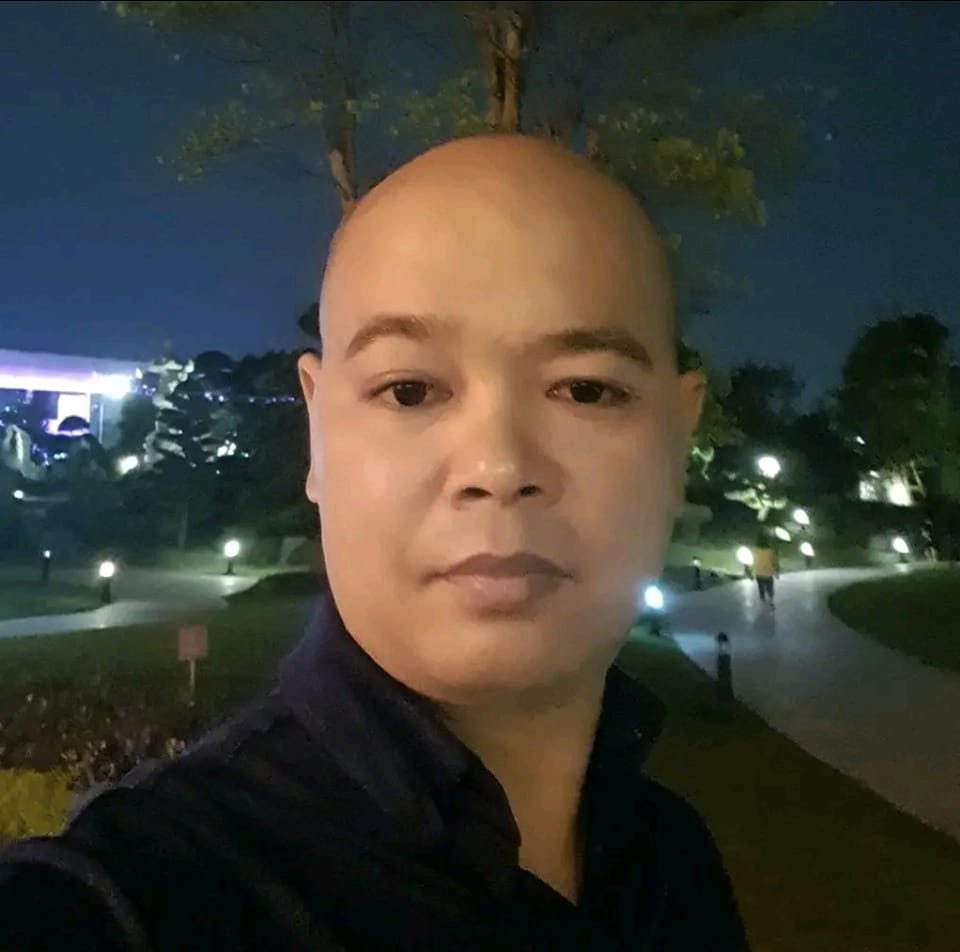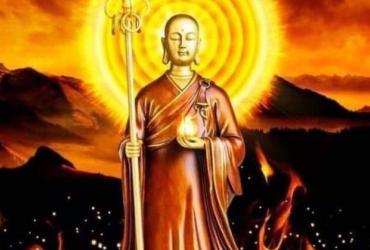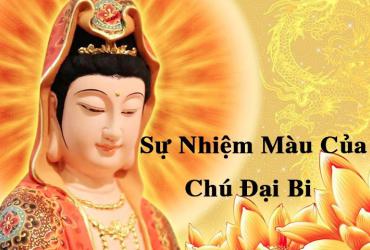Trì Tụng “Chú Đại Bi” Để Đạt Được Công Đức Và Lợi Ích Tối Cao
Theo dõi Tử Vi Cải Mệnh trên- 97 Lượt xem
- Cập nhật lần cuối 26/10/2023
Thần chú Phật giáo được nghe nhiều nhất trên thế giới là “Chú Đại Bi”, không chỉ được truyền bá rộng rãi trong nhân dân, đây còn là điều quan trọng nhất trong tất cả các bài tập của Phật giáo trên thế giới soạn “Chú Đại Bi” thành Tiếng Phạn và hát nó với một nhịp điệu tươi mới. Thần Chú làm cho mọi người cảm thấy thư giãn và hạnh phúc.
Thần chú Phật giáo được nghe nhiều nhất trên thế giới là “Chú Đại Bi”, không chỉ được truyền bá rộng rãi trong nhân dân, đây còn là điều quan trọng nhất trong tất cả các bài tập của Phật giáo trên thế giới soạn “Chú Đại Bi” thành Tiếng Phạn và hát nó với một nhịp điệu tươi mới. Thần Chú làm cho mọi người cảm thấy thư giãn và hạnh phúc.
Lý do tại sao Chú Đại Bi lại được ưa chuộng chủ yếu là vì nó có những công dụng và lợi ích đáng kinh ngạc. Theo “Kinh Đại Bi Dharani”, Đại Phạm Thiên đã hỏi Quán Thế Âm Bồ tát về ý nghĩa thực sự của “Chú Đại Bi”. , Trì tụng Chú Đại Bi này chẳng những có thể tiêu trừ nghiệp chướng nhiều đời, mà còn thành tựu tất cả pháp lành trên thế gian, đạt được công đức vô thượng và chứng quả vô thượng bồ đề, nên tất cả chúng sinh trong thế gian đều nên. hãy tụng “Chú Đại Bi” bằng một lòng.
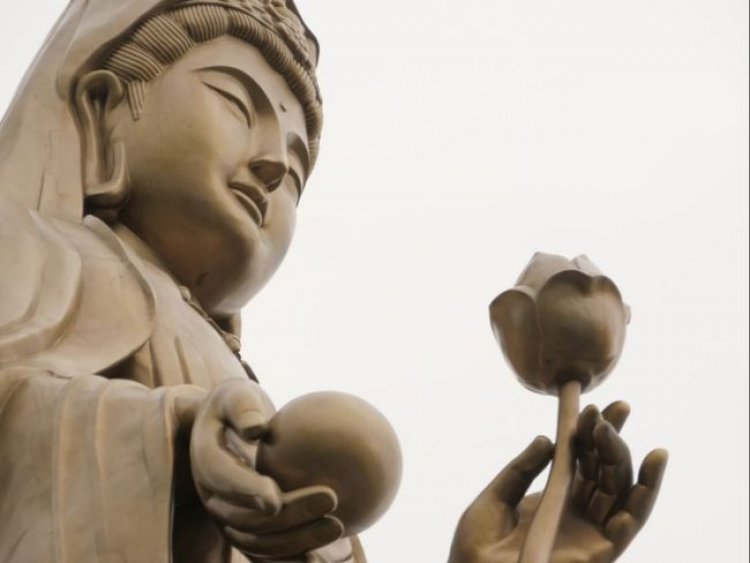
“Chú Đại Bi” đã được lưu truyền rộng rãi ở vùng Hán từ khi được dịch vào thời nhà Đường và trở thành một trong những nhiệm vụ quan trọng đối với các hành giả của Phật giáo Trung Quốc. Chú là câu thần chú do Quán Thế Âm Bồ tát tuyên thuyết vì lợi ích của tất cả chúng sinh. Lợi ích của nó rộng lớn như biển cả, vượt xa tầm với. Chỉ cần “Chú Đại Bi” được thực hành một cách ngoan đạo, cho dù là để loại bỏ chướng ngại. Vì vậy, hầu hết các đệ tử Phật tử sẽ phát tâm tu tập “Chú Đại Bi” để có lợi, vị tha và hộ trì Phật pháp.
Theo kinh Phật, Quán Thế Âm trước khi tai họa khôn lường, Bồ tát lúc bấy giờ đã tu hành dưới trụ xứ của Ngàn Đèn Vương Như Lai, và đạt được địa vị bồ tát đệ nhất, một lần nghe nói Ngàn Đèn ở Như Lai để giáo hóa Pháp lần đầu tiên. Khi tuyên đọc Chú Đại Bi trong “Đại Bi và Đại Bi Dharani”, ngay lúc Pháp đầy hoan hỷ, Bồ Tát đã phát nguyện lớn. Tôi nên cứu độ tất cả chúng sinh bằng câu “Đại Bi này.
Nghe lời đại nguyện này, Phật quốc mười phương chấn động, chư Phật mười phương gia hộ, hiện tại Quán Thế Âm Bồ tát đạt được địa vị bồ tát trong Bát giới, thị hiện đại lực của “Chú Đại Bi”. Kể từ đó, Bồ tát Quán Thế Âm đã làm theo lời nguyện này và giữ “Chú Đại Bi” trong nhiều năm để cứu độ tất cả chúng sinh, tự tâm và vị tha, và đạt được cảnh giới của Phật quả.
Như đã nói ở trên, “Chú Đại Bi” bắt nguồn từ tâm nguyện lớn của Quán Thế Âm Bồ tát, công đức chính của nó là tiêu trừ những nghiệp tội nặng đã gây ra trong nhiều năm, nếu người sắp chết có thể trì tụng “Chú Đại Bi” này với một lòng một dạ, thì người ấy sẽ Đưa nghiệp báo về Tây Phương Cực Lạc.
Thứ hai, trì tụng “Chú Đại Bi” này không những có thể tiêu trừ nghiệp chướng của nhiều đời, mà còn có thể nhận được tất cả nhân duyên lành trên thế gian, tránh xa mọi nỗi sợ hãi khổ đau của thế gian. Vì vậy, chúng ta, những người trên thế gian nên thực hành “Chú Đại Bi” với lòng tin vững chắc và một trái tim yên tĩnh, để tương tác với lòng đại bi của Bồ tát, để đạt được những lợi ích đáng kinh ngạc.
Về công đức và lợi ích của việc trì tụng “Chú Đại Bi”, có thể chia thành lợi ích hiện tại và lợi ích tương lai, lợi ích hiện tại chủ yếu là tiêu trừ nghiệp xấu, đắc nhân duyên, đưa nghiệp báo về Tây Phương Cực Lạc. Lợi ích trong tương lai chủ yếu là đạt được tất cả thiện pháp. Đạt được công đức và trí tuệ nhị nguyên, và cuối cùng đạt được sự viên mãn và bồ đề vô thượng.
Tác dụng của việc trì tụng Chú Đại Bi
Những ai trì tụng chú đại bi này có thể đạt được mười lợi ích chính trong cuộc sống:
(1) Có bình an và hạnh phúc, (2) Tiêu trừ mọi bệnh tật, (3) Kéo dài tuổi thọ, (4) Thịnh vượng, (5) Tiêu trừ mọi nghiệp chướng và trọng tội, (6) Tránh xa các chướng ngại mãi mãi, (7) Tăng thêm phước đức, (8) Tránh xa mọi sợ hãi, (9) Phát triển mọi cội nguồn tốt đẹp, (10) Đến cuối đời, vị phật nào cũng sống như ý nguyện.
Những ai trì tụng chú đại bi không phải chịu 15 cái chết xấu xa:
(1) Không chết vì đói và gian khổ, (2) Không chết vì gậy gộc, (3) Không chết vì kẻ thù, (4) Không chết vì nghĩa quân, (5) Không chết vì hổ, sói, hoặc thú dữ(6) không chết vì rắn độc, sâu và bọ cạp, (7) không chết vì nước hoặc lửa, (8) không chết vì chất độc, ( 9) không chết vì bị điên, (10) không mất trí Chết, (11) không chết vì ngã trên bờ vách núi cây cối. (12) Không chết vì người ác và quỷ dữ, (13) Không chết vì ác ma và ác thần, (14) Không chết vì bệnh tật quái ác, (15) Không tự sát vì mọi người.
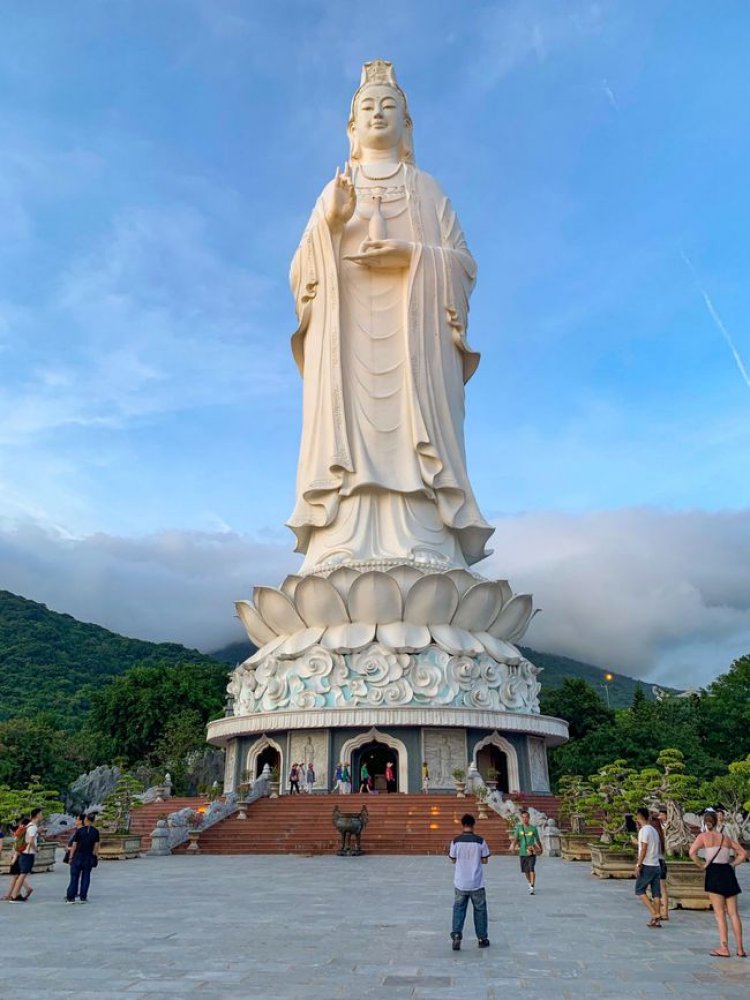
Công năng của việc trì tụng chú đại bi
Thứ hai, về công năng và lợi ích của việc trì “Chú Đại Bi”, nói chung, đại khái có những lợi ích sau đây.
1. Những ai tái sinh trong Tam giới Tam ác nếu nghe được “Chú Đại Bi” thì có thể thoát khỏi khổ đau của Tam ác, còn những ai tái sinh vào Tam ác thì không đọa vào Tam ác nếu họ có thể trì tụng “Chú Đại Bi”.
2. Chỉ cần chúng ta chuyên tâm hướng thiện, và trì tụng “Chú Đại Bi” với một trái tim tĩnh lặng, thì tất cả những mong muốn trên thế gian này đều có thể thành hiện thực.
3. Nếu bạn muốn niệm danh hiệu thiêng liêng của “Quán Thế Âm Bồ tát” khi bạn cắt tóc, và sau đó trì tụng “Chú Đại Bi” hơn năm lần một đêm, bạn có thể tiêu trừ nghiệp ác đã tạo trong nhiều năm và đạt được vận mệnh tốt trong thế giới này.
4. Hãy siêng năng trì tụng “Chú Đại Bi” mỗi ngày, và cuối đời sẽ thu hút được chư Phật, và bạn có thể tái sinh đến bất kỳ Cõi Phật nào mà bạn khao khát.
5. Trì tụng “Chú Đại Bi” có thể quét sạch mọi điều ác và sinh tử, được tất cả các loại kiếp tốt lành.
6. Tất cả bệnh nhân trong Tam giới nếu trì tụng “Chú Đại Bi” đều có thể tránh xa.
7. Tụng “Chú Đại Bi” để được tất cả pháp lành và được phước đức, trí tuệ.
8. Nếu bạn trì tụng “Chú Đại Bi” và khơi dậy lòng từ bi, bạn sẽ được chư Phật và Bồ tát mười phương gia trì.
9. Nghe nói hành giả có thể trì tụng “Chú Đại Bi” mà chưa đạt được quả vị thì có thể chứng được quả vị A La Hán.
10. Tụng “Chú Đại Bi” để được sự hộ trì của các vị hộ pháp trong mười phương.
Phần kết luận:
Về công đức phi thường của việc trì tụng “Chú Đại Bi”, Phật giáo nói rằng tất cả chư Phật trong mười phương đều khen ngợi sức mạnh vô song của thần chú này. Vì vậy, tất cả chúng sinh trên thế gian đều nên làm theo “Chú Đại Bi”, để giải các nghiệp ác của nhiều đời, để có được phước lành của thế giới hiện tại, và tìm kiếm sự viên mãn trong cuộc sống tương lai.
Chú đại bi tiếng Việt
Đây là bản chú đại bi dịch từ Âm Phạn – > Âm Hán – > Âm Việt được sử dụng chính thức trong các các Kinh điển và nghi thức tụng niệm phổ thông tại Việt Nam
Nam-mô Đại-bi Hội-Thượng Phật Bồ-tát (3 lần).
Thiên thủ thiên nhãn, vô ngại Đại-bi tâm đà-la-ni.
Nam mô hắc ra đát na đa ra dạ da.
Nam mô a rị da bà lô yết đế, thước bát ra da, bồ đề tát đỏa bà da, ma ha tát đỏa bà da, ma ha ca lô ni ca da. Án tát bàn ra phạt duệ, số đát na đát tỏa.
Nam mô tất kiết lật đỏa, y mông a rị da, bà lô kiết đế, thất Phật ra lăng đà bà.
Nam mô na ra cẩn trì hê rị, ma ha bàn đa sa mế, tát bà a tha đậu du bằng, a thệ dựng, tát bà tát đa, na ma bà già, ma phạt đạt đậu, đát điệt tha. Án, a bà lô hê, lô ca đế, ca ra đế, di hê rị, ma ha bồ đề tát đỏa, tát bà tát bà, ma ra ma ra, ma hê ma hê, rị đà dựng, cu lô cu lô, kiết mông độ lô độ lô, phạt xà da đế, ma ha phạt xà da đế, đà ra đà ra, địa rị ni, thất Phật ra da, dá ra dá ra. Mạ mạ phạt ma ra, mục đế lệ, y hê di hê, thất na thất na, a ra sâm Phật ra xá lợi, phạt sa phạt sâm, Phật ra xá da, hô lô hô lô, ma ra hô lô hô lô hê rị, ta ra ta ra, tất rị tất rị, tô rô tô rô, bồ đề dạ, bồ đề dạ, bồ đà dạ, bồ đà dạ, di đế rị dạ na ra cẩn trì địa rị sắc ni na, ba dạ ma na, ta bà ha. Tất đà dạ, ta bà ha. Ma ha tất đà dạ, ta bà ha. Tất đà du nghệ, thất bàn ra dạ, ta bà ha. Na ra cẩn trì, ta bà ha. Ma ra na ra, ta bà ha. Tất ra tăng a mục khê da, ta bà ha. Ta bà ma ha, a tất đà dạ, ta bà ha. Giả kiết ra a tất đà dạ, ta bà ha. Ba đà ma yết tất đà dạ, ta bà ha. Na ra cẩn trì bàn đà ra dạ, ta bà ha. Ma bà lị thắng yết ra dạ, ta bà ha.
Nam mô hắc ra đát na, đa ra dạ da.
Nam mô a rị da, bà lô yết đế, thước bàng ra dạ, ta bà ha.
Án, tất điện đô, mạn đa ra, bạt đà dạ ta bà ha. (3 lần khi trì biến cuối cùng)
84 câu chú đại bi chia theo từng câu cho dễ học
Nam Mô Đại Bi Hội Thượng Phật Bồ Tát ( 3 lần )
Thiên thủ thiên nhãn vô ngại đại bi tâm đà la ni
1. Nam Mô Hắc Ra Đát Na Đa Ra Dạ Da
2. Nam Mô A Rị Da
3. Bà Lô Yết Đế Thước Bát Ra Da
4. Bồ Đề Tát Đỏa Bà Da
5. Ma Ha Tát Đỏa Bà Da
6. Ma Ha Ca Lô Ni Ca Da
7. Án
8. Tát Bàn Ra Phạt Duệ
9. Số Đát Na Đát Tỏa
10. Nam Mô Tất Kiết Lật Đỏa Y Mông A Rị Da
11. Bà Lô Yết Đế Thất Phật Ra Lăng Đà Bà
12. Nam Mô Na Ra Cẩn Trì
13. Hê Rị Ma Ha Bàn Đa Sa Mế
14. Tát Bà A Tha Đậu Du Bằng
15. A Thệ Dựng
16. Tát Bà Tát Đa (Na Ma Bà Tát Đa) Na Ma Bà Già
17. Ma Phạt Đạt Đậu
18. Đát Điệt Tha
19. Án A Bà Lô Hê
20. Lô Ca Đế
21. Ca Ra Đế
22. Di Hê Rị
23. Ma Ha Bồ Đề Tát Đỏa
24. Tát Bà Tát Bà
25. Ma Ra Ma Ra
26. Ma Hê Ma Hê Rị Đà Dựng
27. Cu Lô Cu Lô Yết Mông
28. Độ Lô Độ Lô Phạt Xà Da Đế
29. Ma Ha Phạt Xà Da Đế
30. Đà Ra Đà Ra
31. Địa Rị Ni
32. Thất Phật Ra Da
33. Giá Ra Giá Ra
34. Mạ Mạ Phạt Ma Ra
35. Mục Đế Lệ
36. Y Hê Y Hê
37. Thất Na Thất Na
38. A Ra Sâm Phật Ra Xá Lợi
39. Phạt Sa Phạt Sâm
40. Phật Ra Xá Da
41. Hô Lô Hô Lô Ma Ra
42. Hô Lô Hô Lô Hê Rị
43. Ta Ra Ta Ra
44. Tất Rị Tất Rị
45. Tô Rô Tô Rô
46. Bồ Đề Dạ Bồ Đề Dạ
47. Bồ Đà Dạ Bồ Đà Dạ
48. Di Đế Rị Dạ
49. Na Ra Cẩn Trì
50. Địa Rị Sắc Ni Na
51. Ba Dạ Ma Na
52. Ta Bà Ha
53. Tất Đà Dạ
54. Ta Bà Ha
55. Ma Ha Tất Đà Dạ
56. Ta Bà Ha
57. Tất Đà Du Nghệ
58. Thất Bàn Ra Dạ
59. Ta Bà Ha
60. Na Ra Cẩn Trì
61. Ta Bà Ha
62. Ma Ra Na Ra
63. Ta Bà Ha
64. Tất Ra Tăng A Mục Khê Da
65. Ta Bà Ha
66. Ta Bà Ma Ha A Tất Đà Dạ
67. Ta Bà Ha
68. Giả Kiết Ra A Tất Đà Dạ
69. Ta Bà Ha
70. Ba Đà Ma Yết Tất Đà Dạ
71. Ta Bà Ha
72. Na Ra Cẩn Trì Bàn Dà Ra Dạ
73. Ta Bà Ha
74. Ma Bà Lợi Thắng Yết Ra Dạ
75. Ta Bà Ha
76. Nam Mô Hắc Ra Đát na Đa Ra Dạ Da
77. Nam Mô A Rị Da
78. Bà Lô Yết Đế
79. Thước Bàn Ra Dạ
80. Ta Bà Ha
81. Án Tất Điện Đô
82. Mạn Đà Ra
83. Bạt Đà Dạ
84. Ta Bà Ha
(Lặp lại 3 lần từ câu Chú 81 đến 84 khi quý vị trì biến cuối cùng)
Chú đại bi tiếng Phạn (Sanskrit)
Namo ratnatràyàya.
Namo Aryàvalokites’varàya Bodhisattvaya Mahasattvaya Mahàkarunikàya.
Om sarva rabhaye sunadhàsya.
Namo skirtva imam aryàvalotites’vara ramdhava.
Namo narakindhi hrih mahàvadhasvàme.
Sarvàrthato subham ajeyam sarvasata. Namo varga mahàdhàtu.
Tadyathà: om avaloki lokate karate.
Ehrih mahà bodhisattva sarva sarva mala mala.
Mahi hrdayam kuru kuru karman.
Dhuru dhuru vijàyate mahàvijayati.
Dhara dhara dhirini svaràya.
Cala cala mama vimala muktir.
Ehi ehi s’ina s’ina àrsam prasari.
Basha basham prasàya hulu hulu mara.
Hulu hulu hrih sara sara siri siri suru suru.
Bodhiya bodhiya bodhaya bodhaya.
Maitreya narakindi dhrish nina.
Bhayamana svaha siddhaya svàhà.
Maha siddhàya svaha.
Siddha yoge s’varaya svaha. Nirakindi svàhà.
Mara nara svaha s’ira Simha mukhàya svaha.
Sarva maha asiddhaya svaha. Cakràsiddhaya svaha.
Padma kastàya svaha.
Nirakindi vagalàya svaha.
Mavari śankaraya svāhā.
Namo ratnatràyàya. Namo aryàvalokites’varaya svaha.
Om siddhyantu mantra pàdàya svàhà.

